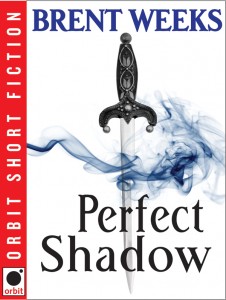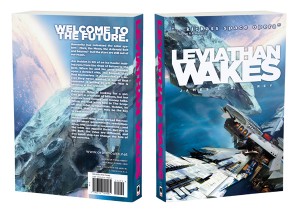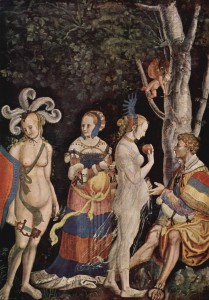Equations of Life POSTER GIVEAWAY
You can learn to make your own in our How-To video, or you can win your own! Just sign up below and you’ll be entered to win one of ten “Mind the Gap” posters.
UPDATE: Contest is now closed.
You can learn to make your own in our How-To video, or you can win your own! Just sign up below and you’ll be entered to win one of ten “Mind the Gap” posters.
UPDATE: Contest is now closed.
The David Gemmell Award nominees have been revealed and we are pleased to announce that Orbit titles have received a total of 5 nominations across the three categories!
The Morningstar Award for Best Fantasy Newcomer
The Ravenheart Award for Best Fantasy Book Jacket
Congrats to all of our nominees!


Over the weekend at Eastercon, the Hugo Award nominees were announced. Both Mira Grant’s FEED and N.K. Jemisin’s THE HUNDRED THOUSAND KINGDOMS were nominated for best novel!
You can read the first three chapters of THE HUNDRED THOUSAND KINGDOMS here, and the first chapter of FEED here.
To see the full list of nominees, visit the Renovation website.
I am sometimes asked – why fantasy? Of all the genres out there, why one that is often regarded as frivolous, clichéd, superficial and occasionally pornographic in a slightly weird way. And let’s face it, fantasy has had its off days. Glowing swords, ancient quests, and wizards who feel the need to talk in rhyme have traipsed across landscapes with more than a certain Tolkein-esque something about them, while, perhaps, lustful vampires deflower roaming princesses who curiously enough do wear white, even when mud is going to be a problem.
And I’m not here to defend this, particularly. I mean, the defences are obvious – escapism, powerful storytelling, worlds full of could be and should be and all that jazz. But for me, personally, it’s not why I love fantasy. (more…)
 Brent Weeks burst onto the fantasy scene in 2008 with the launch of his internationally bestselling Night Angel Trilogy, which has sold over 1 million copies worldwide. Now, he’s returning to the world of The Night Angel Trilogy with Perfect Shadow, a novella that tells the origin story of the legendary assassin Durzo Blint.
Brent Weeks burst onto the fantasy scene in 2008 with the launch of his internationally bestselling Night Angel Trilogy, which has sold over 1 million copies worldwide. Now, he’s returning to the world of The Night Angel Trilogy with Perfect Shadow, a novella that tells the origin story of the legendary assassin Durzo Blint.
The ebook edition of Perfect Shadow will be available in the US and the UK in June, 2011. It will be simultaneously released as an unabridged audiobook for digital download, online where books and music are sold.
In the official press release, Brent explains: “When I wrote Perfect Shadow, I was afraid it was going to fall into a publishing no-man’s land: too short to be distributed as a novel, too long to be sold as a short story. Orbit’s digital publishing has given me a way to get this story out. More than that, it’s given me the artistic freedom to write a story exactly as long as it needs to be.”
We’re glad he did! You can find the novella’s description after the jump. (more…)
 Orbit Short Fiction officially launches today and we have a shiny new website to prove it. Stories published today come from Mira Grant, T.C. McCarthy, Jennifer Rardin, and Jaye Wells.
Orbit Short Fiction officially launches today and we have a shiny new website to prove it. Stories published today come from Mira Grant, T.C. McCarthy, Jennifer Rardin, and Jaye Wells.
All stories are available widely from ebook retailers in the US (and further afield soon).
Enjoy!
When Ginia Bellafante at the New York Times and Troy Patterson at Slate condemn “Game of Thrones,” they are expressing something that genre writers and readers have experienced often with people who consider themselves the guardians of high culture. They condescend eloquently, but without convincing arguments. The disdain they have for the show is less for the execution or artistry of the production than for the genre it comes from. Ms. Bellafante manages to alienate women who read fantasy (who, in fairness she does agree exist). Mr. Patterson indulges in a couple opening paragraphs of his own fiction, padding out his wordcount with descriptions of his mail. Neither of them make a convincing case, and cover up the fact with biting but unfunny wit.
This happens all the time.
From the creative writing professor who won’t accept “that kind” of work to the friend who sneers at you for buying the latest Harry Dresden to the professional critic who will make grand generalizations instead of real arguments, people who are interested in high culture – and in gaining social status by what they read and who they look down on – have always found an easy target in fantasy and science fiction. If they were strapped down and shown the importance and relevance of Ursula Le Guin, Philip K Dick, Octavia Butler, Stephen King, and the other giants in the field, it wouldn’t help. Be angry at the sun for setting if these things anger you, (he says, quoting Robinson Jeffers).
But they bring up what is, to me, a more interesting question. The editors of Slate and the New York Times have selected these people and given them high-status venues from which to express their opinions. They expect me and their other readers to appreciate these reviews and to care what the reviewers think. My question is: why?
(more…)
 In the April 11 issue of Publishers Weekly, out this week, there is an interview with Daniel Abraham and Ty Franck, who talk about their first collaborative novel, LEVIATHAN WAKES (called “a riveting interplanetary thriller” by PW in its starred review).
In the April 11 issue of Publishers Weekly, out this week, there is an interview with Daniel Abraham and Ty Franck, who talk about their first collaborative novel, LEVIATHAN WAKES (called “a riveting interplanetary thriller” by PW in its starred review).
“We put two very recognizable characters in an almost nostalgic science fiction world, so respecting the internal lives of the characters was important. That real unapologetic embrace of sentiment is what makes the book work.”
Only part of the interview appears in the magazine. The rest (as informative, as entertaining) appears courtesy of Rose Fox at Genreville, where among other things Daniel & Ty discuss how to manage the joint writing of such an enormous project.
LEVIATHAN WAKES (called “relentlessly entertaining” by Kirkus) goes on sale June 17.
 Niklaus Manuel Deutsch is an artist all but forgotten in the modern age. I’m not claiming this is some great travesty, for his work, while quite good, is not necessarily outstanding, nor was he particularly prolific. In fact, Manuel abandoned painting and etching in the last decade of his life to focus on poetry, play writing, and one of the trickiest arts of all, politics. Had he stuck with one or two disciplines perhaps he might have produced a single work that endured through the ages, as opposed to creating many worthy but unexceptional pieces that have been swept away in the great flood of history, occasionally bobbing to the surface in this coffee table book or that academic tome on plays of the Swiss Renaissance. Of course, that’s simple conjecture–it’s entirely possible that had Manuel lived an extra thirty years and painted every single day of every single one of them he may never have produced anything more memorable than what we already have of his work. It is possible, uncharitable an observation as it is to make about any artist, that the man was simply not a genius, not a savant, that he was as good an artist as he ever could have been. (more…)
Niklaus Manuel Deutsch is an artist all but forgotten in the modern age. I’m not claiming this is some great travesty, for his work, while quite good, is not necessarily outstanding, nor was he particularly prolific. In fact, Manuel abandoned painting and etching in the last decade of his life to focus on poetry, play writing, and one of the trickiest arts of all, politics. Had he stuck with one or two disciplines perhaps he might have produced a single work that endured through the ages, as opposed to creating many worthy but unexceptional pieces that have been swept away in the great flood of history, occasionally bobbing to the surface in this coffee table book or that academic tome on plays of the Swiss Renaissance. Of course, that’s simple conjecture–it’s entirely possible that had Manuel lived an extra thirty years and painted every single day of every single one of them he may never have produced anything more memorable than what we already have of his work. It is possible, uncharitable an observation as it is to make about any artist, that the man was simply not a genius, not a savant, that he was as good an artist as he ever could have been. (more…)